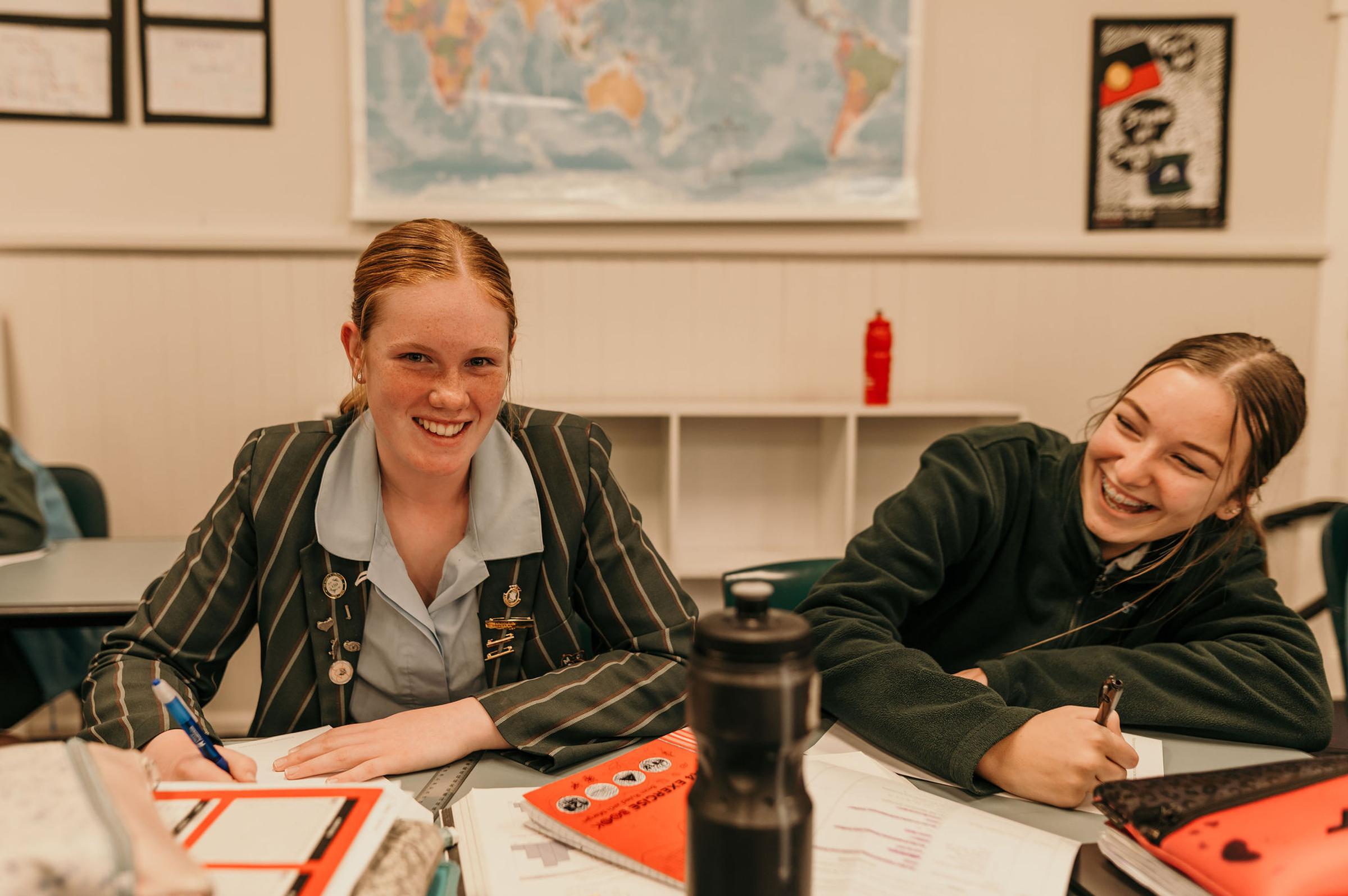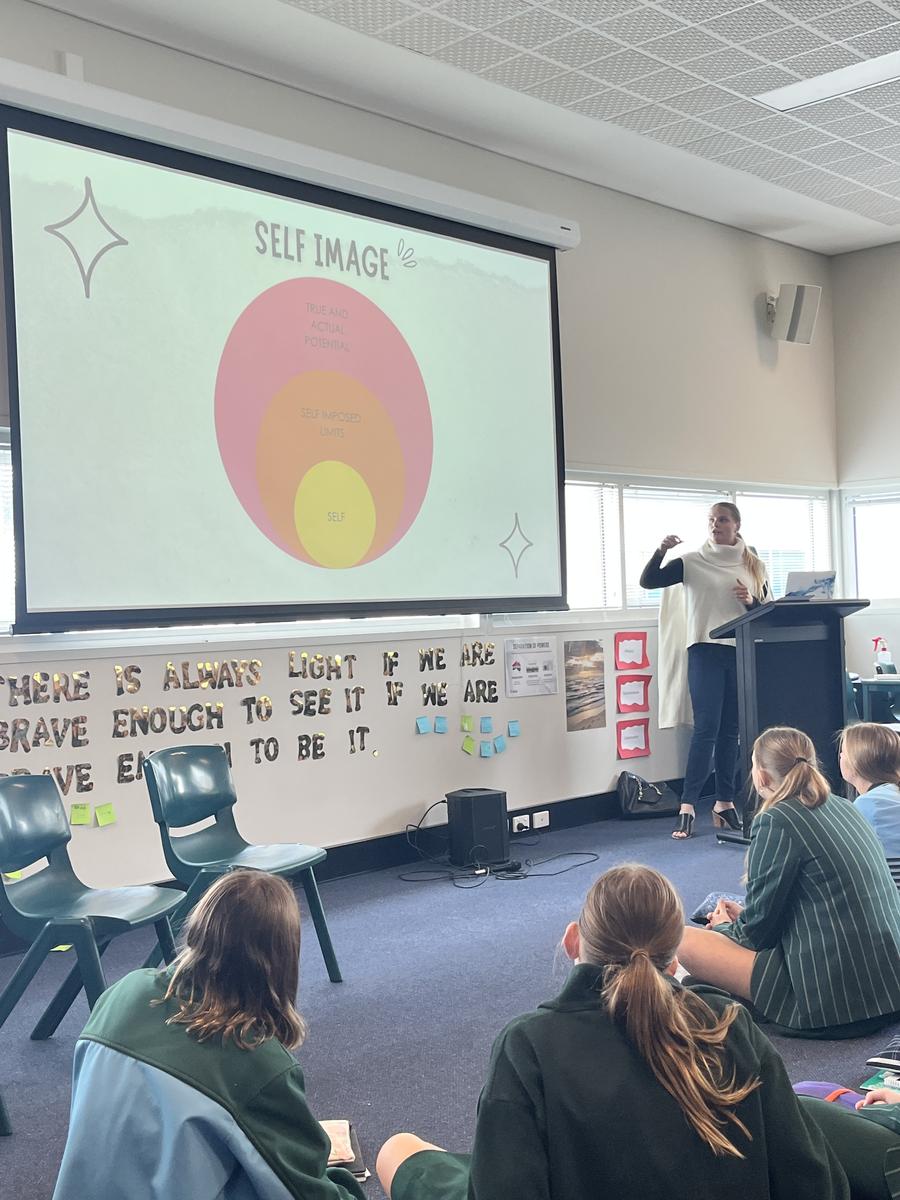Empowering engagement through student voice
Research shows that student voice has the potential to benefit students, schools and the broader community by:
- increasing student’s engagement in learning
- encouraging collaboration between students and their teachers and learning support staff
- creating and maintaining a positive environment and culture
- building respectful relationships, connections and belonging
- developing personal and social capabilities
As communicated in previous editions of The Fountain, the College's Pillars program is underpinned by the six domains of the PERMAH framework: Positive Emotion, Engagement, Relationships, Meaning, Accomplishment and Health.
Senior School students recently had the opportunity to identify ways in which each of the domains could be developed and explored at school.
A summary of the students' feedback is shared below.
Positive Emotion
- Expressing thoughts and emotions through creative means.
- Doing things that make me happy and being able to spread my positivity to others.
- Spending more time doing simple things in nature such as more gardening or going for walks.
- By appreciating and acknowledging the little things I might take for granted in my life.
- Supporting ways of positive thinking, and teaching ways to ignore negative thoughts.
- Expressing gratitude is important for a positive mindset.
- Hanging out with people who make you happy.
- Engaging with younger students; support students to have a project that could help others.
- Learning skills to deal with different situations.
- Having a free period to do our homework and other assessments, or spending time with the Kinders or Preps to take our mind off our schoolwork.
Engagement
- Expressing thoughts and emotions through creative means.
- Getting students to participate in activities that interest them, learning new skills and talents.
- Getting good sleep.
- Meditating, journalling, brain breaks and finding time to reflect.
- Guest speakers and excursions.
- More games and sport/academic competitions between classes.
- Discussing study strategies.
- Finding out how we learn best.
- Learning coping skills and ways to stay calm.
- Having conversations and not working on devices as much.
- Each year group could paint a section of a wall so it becomes a huge mural, so we're always connected to the school.
Relationships
- Highlighting the importance of how our words impact others and trying to learn to consciously choose kindness. Developing skills in recognising others' feelings and how to respond.
- Showing your friends you appreciate them, so the kindness will bounce back. In a world where you can be anything, be kind.
- Having the opportunity to work on projects with close friends. We can grow our relationships with people by spending more time with them.
- Showing and reminding my friends and family that I appreciate them.
- Being considerate of others and discovering others' strengths and weaknesses.
- Appreciate your relationships and respect others' point of view and differences.
- Actively listening when others are talking.
- Developing skills to grow and improve relationships inside and outside the home.
- Doing things with your House group (getting to know more students).
- Random acts of kindness.
Meaning
- Learning how to identify and focus on something larger than yourself.
- Adding meaning to your life by doing things you enjoy that make you feel good.
- Exploring what you love and figuring out something that will get you out of bed in the morning and motivated to start working hard to achieve that.
- Thinking of the bigger picture and what will benefit my future and how I can grow as a person. Setting structure and routine for myself and creating self-discipline.
- Talking to us about our future and what to look forward to.
- Not thinking just about yourself, instead thinking about people around us and helping them.
- Finding something you enjoy to motivate you.
- Joining activities such as sports or other clubs to have something to look forward to each week.
- Writing down things you achieve and celebrating them.
Accomplishment
- Being hopeful and optimistic and making sure to put in the effort needed to be successful and having the feeling of being or feeling accomplished.
- Setting goals to achieve and make yourself feel good.
- Celebrating achievements and reaching goals.
- Showing us it's OK to fail and try again.
- Being resilient and determined to achieve your goals.
- Finding interests in subjects and focusing on loving to learn.
- Setting academic and life goals for yourself and aiming to achieve them in a certain period.
- Eliminating negative self-talk in the classroom by using positive language towards students and not letting them get away with saying degrading things like, 'I suck' or 'I can't do this'.
- Being open to opportunities that come my way.
Health
- Always drink water and eat healthy food, take daily walks, surround yourself with positive people, being kind to yourself.
- Always keeping in mind the importance of self care and self love.
- Encouraging healthy habits, spending time relaxing to improve mental health.
- Providing anonymous counselling for students with mental health challenges who are embarrassed to seek help.
- Walks around the school (opportunities to learn outside in the fresh air).
- Sporting activities, e.g. playing dodgeball during brain breaks or going out for team building games in our Pillars lessons.
- Prioritising sleep.
- Avoiding sitting in front a laptop all day.
Moving forward, our goal is to continue working with the students to develop a program that ensures quality participation and engagement - the optimum conditions for student wellbeing.
Year 9 Pillars program
The Year 9 students are currently unpacking the importance of motivation and the qualities of grit and persistence. Last week they met with guest speaker, Michelle Menzies, who shared her story as a cancer survivor and spoke about the importance of confidence, purpose and gratitude.
A life coach and educator, Michelle works with individuals who may feel lost and disconnected. Michelle’s goal is to 'help individuals get to know WHO they are again, so they begin to really shine and LIVE their life'.
There were many takeaways for the Year 9s. Most powerful was her message that each day people have 60,000 to 80,000 thoughts. Of these thoughts, 95 per cent are repetitive and 80 per cent are negative. Therefore, challenging limiting beliefs and habits and developing a positive mindset are vital for people wanting to find true happiness and live an authentic life.
The session concluded with a gratitude reflection, a practice that Michelle undertakes every day. We thank Michelle for taking the time to speak with our students.




